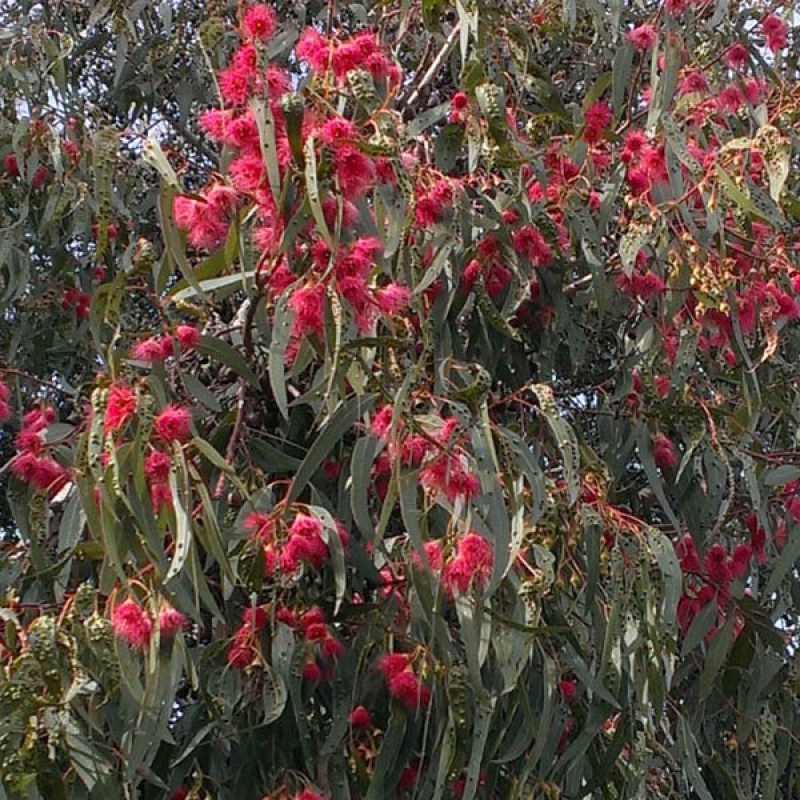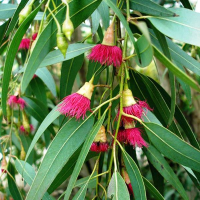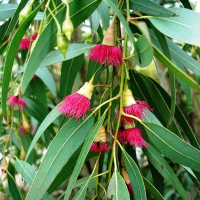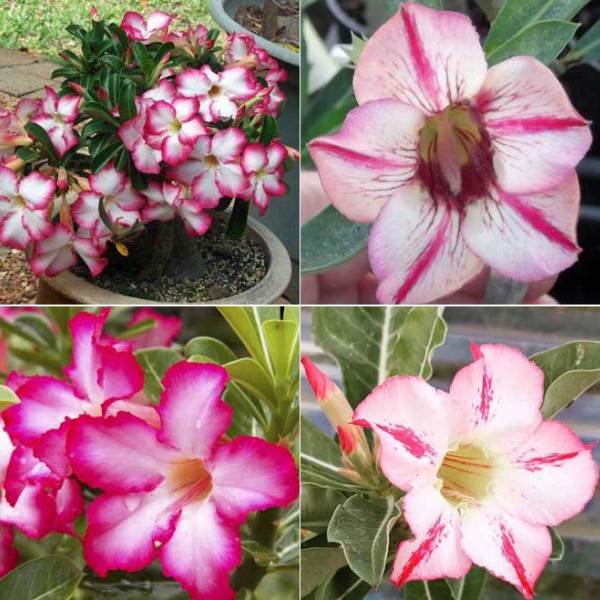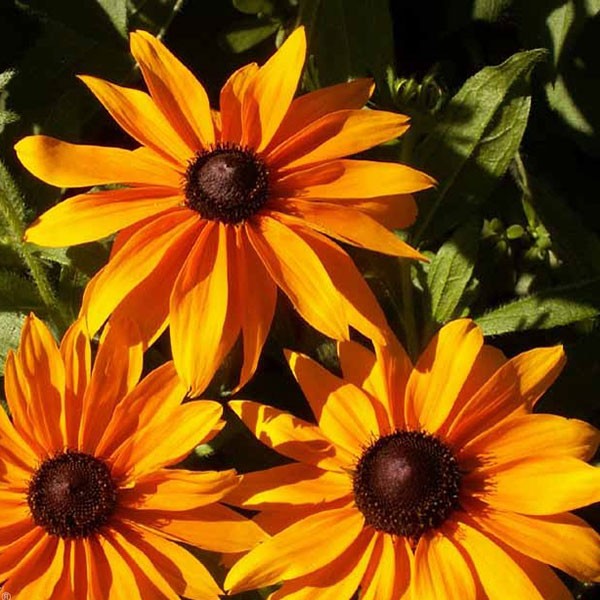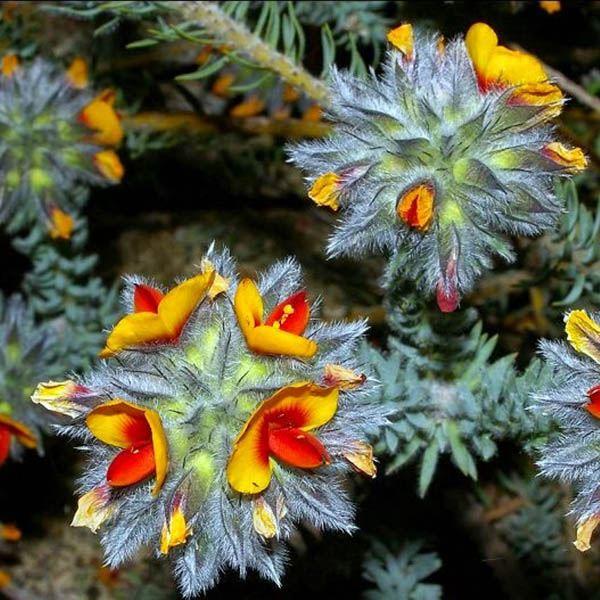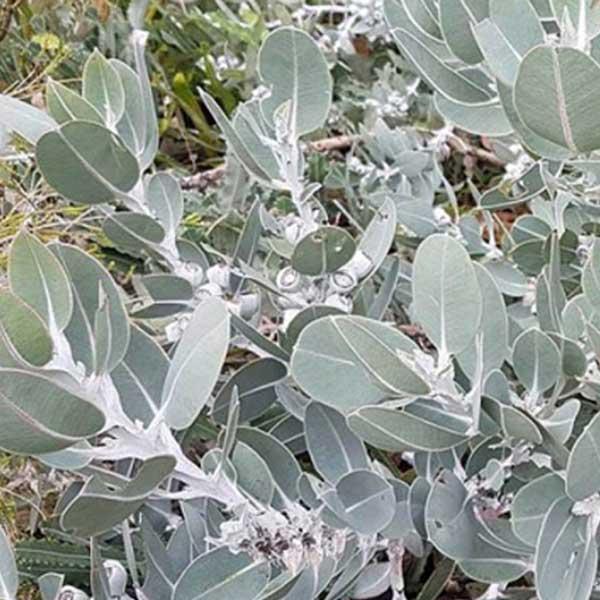We ship Internationally and Australia wide | Phytosanitary Certificates available for international orders.
EUCALYPTUS leucoxylon ssp. megalocarpa (red fls) 25g
Yellow Mallee or Blue Mallee
Rare Red Flowers
Family: Myrtaceae
Sub-family: Myrtoideae
Characteristics: Ornamental mallee or tree 4-12 m spread 4-10 m
Seed per packet: Approx. 25
Seed per gram: Approx. 250
A hardy highly ornamental upright spreading tree with smooth bark and long grey-green pendulous branches that makes an ideal shade or specimen tree.
Juvenile leaves are slightly blue-green, ovate to cordate in shape, and up to 10 cm long. The large adult leaves are green and lanceolate in shape and up to 19 cm long.
Red flowers (rare in this species) in clusters of three occur from late winter to early summer which attracts nectar-eating birds and insects. Flowers especially attract bees which are an excellent source of honey.
The wood was used to make fighting sticks and shields by indigenous peoples.
Adaptable to a wide range of soils and climatic conditions. Drought tolerant and resistant to moderate frost.
Grow notes:
Eucalypt's germinate readily from seed and are generally considered one of the easiest natives to grow from seed.
Depending on the species Eucalyptus seed comes in various sizes from very fine to several millimetres long. As a rule of thumb seed that is fine should be sown on the surface of a porous mix and not buried. Seed 1 to 2 mm in diameter can be covered very lightly and seed from 2 mm up can be sown to a depth of the seed width.
Although seed can be sown most of the year in many parts of Australia seed is generally best sown in spring or autumn in temperate climates, avoiding the coldest and hottest months of the year. The optimum germination temperature for germination is around 18-22°C
- Sow seed on the surface of a porous seed raising mix. The seed will lodge in the pores of the mix once watered.
- Sprinkle a very light covering of the seed raising mix over the seed if required to hold the seed in place. Do not bury seed deeply.
- Water with fine mist spray to avoid disturbance of the seed.
- Place in a warm shaded or semi-shaded position to avoid dying out.
- Keep warm & moist, avoid drying out or waterlogging the growing mix.
- Germination generally occurs in around 10-28 days in the right condition.
General note: Seeds of many natives are dormant and require specific conditions or pre-treatment for germination.
Do not be too hasty to discard seed that does not germinate, seeds will often lay dormant until the conditions are similar to their natural requirements for germination to occur. Containers put to one side will often surprise long after they were discarded.
Best sown in spring or autumn in temperate climates, avoid the coldest and hottest months of the year. The optimum temperature for germination is around 18-22°C
Sow seed in a seed-raising mix just below the surface.
Water with a fine mist spray to avoid disturbance of the seed.
Germination generally occurs in around 10-28 days.
Please note:
These growth notes are provided as guidance only and do not guarantee successful germination.
If you are uncertain about the requirements for importing seeds into your country, do not hesitate to contact our Export Manager at Australian Seed.
Being a registered Export Establishment, we have an officer who can help you obtain Phytosanitary certificates if needed.
It is important to note that the buyer is responsible for clearing the goods through customs and paying all associated charges, including import fees and taxes. Please note that we cannot accept returns due to Australian quarantine restrictions.
You can find the complete International terms and conditions by clicking on this link
At Australian Seed, we take pride in our extensive network of trusted suppliers and collectors who work with us to provide you with an unmatched selection of top-quality products.
Whether you are searching for a specific item or need to make a bulk purchase, our team is here to help. Our dedicated customer service representatives can guide you through our vast inventory and assist you in finding exactly what you need.
We are committed to providing our customers with the highest level of service and support.
Please don't hesitate to contact us If you require any assistance. Please don't hesitate to contact us at Australian Seed

